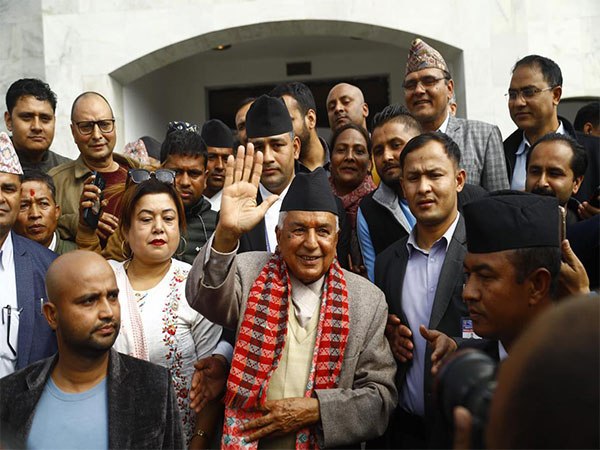NB Explain | What impels Nepal President to seek medical treatment in India & not Nepal?
Nepal has a shortage of health care workers, medical supplies, and equipment, particularly in rural areas. Many health facilities lack proper sanitation and hygiene, and there is a lack of reliable data on health indicators.
Total Views |
New Delhi, Apr 20: Nepal President Ram Chandra Paudel arrived at New Delhi airport on Wednesday (Apr 19) for his medical treatment. He will be admitted to the All India Institute of Medical Sciences (AIIMS) here due to a fall in oxygen levels.

The Nepal President was flown from Nepal to New Delhi in an air ambulance after he was detected with a lung infection, officials had confirmed. Earlier, an official from the President's Secretariat confirmed that the President was to be flown to AIIMS for further treatment as there was no improvement in his health. He was admitted to the hospital on Tuesday (Apr 18) after falling short of breath and fainting.
The President had reached the government hospital on Monday (Apr 17) for a check-up, following which he was admitted to the hospital. On Monday, doctors found an infection in his lungs, after this, he was put on medicines which apparently failed to make a significant improvement in his health. Paudel also underwent treatment for four days at the same hospital after being admitted on Apr 5 this year. As per the hospital's release issued earlier, Paudel, who is the third President of the Republic of Nepal, was admitted after he complained about a stomach ache.
Health Infrastructure in Nepal
While the President of Nepal arrives in New Delhi for his further treatment, let us have a look at the condition of health & medical infrastructure in Nepal. As of 2021, when the world was finally relieving from the global pandemic, Nepal's health infrastructure faced significant challenges due to its inadequate resources, limited capacity, and disparities in access to health services. Nothing much has changed by now.
#Nepal President #RamchandraPaudel was on Wednesday airlifted to #India at All India Institute of Medical Sciences (#AIIMS) in New Delhi for treatment after complaining of shortness of breath, his Office said. pic.twitter.com/nfLRK76Omy
— IANS (@ians_india) April 19, 2023
The country has a shortage of health care workers, medical supplies, and equipment, particularly in rural areas. Many health facilities lack proper sanitation and hygiene, and there is a lack of reliable data on health indicators.
Additionally, Nepal has struggled to deal with the COVID-19 pandemic, which has put immense pressure on the country's health infrastructure. The pandemic has highlighted existing weaknesses in the health system and highlighted the need for increased investment in health infrastructure, equipment, and human resources.
The health infrastructure in Nepal faces several challenges that require urgent attention from the government and other stakeholders. It is essential to invest in improving health infrastructure to ensure that everyone has access to quality health care services.
Role of Nepal's neighbours
Nepal has two important neighbours; India and China that have provided aid to the Himalayan nation whenever required. However, the aiding models of both the countries differ a lot. China's investment and aid to Nepal in the health sector and other sectors are based on various reasons and motivations, one of which is monetary returns. Besides, other neighbouring countries, particularly Sri lanka and Pakistan are an existing testimonial of China's aid.
China has geopolitical and strategic interests in Nepal, as Nepal is a landlocked country between India and China, and a stable Nepal can provide strategic advantages to China.
At the same time, India has been a key partner in Nepal's health sector for many years, and its role in supporting Nepal's health sector has been significant. India has provided aid and assistance to Nepal in various areas of healthcare, including the provision of medical supplies, equipment, and medicines, as well as technical assistance to improve the quality of healthcare services.
During the COVID-19 pandemic, India has played a crucial role in supporting Nepal's pandemic response. India has provided Nepal with medical supplies, including PPE, ventilators, and testing kits, as well as COVID-19 vaccines. India has also sent medical teams to Nepal to assist with the pandemic response and has provided training to Nepalese healthcare workers on COVID-19 management and treatment.
India has also supported the construction and renovation of health facilities in Nepal, particularly in remote areas, to improve access to healthcare services. India has provided technical assistance to improve the quality of healthcare services, including disease surveillance and control, maternal and child health, and the prevention and control of communicable diseases.
Overall, India's role in Nepal's health sector has been significant, and its support has helped improve the health and well-being of the Nepalese people. The COVID-19 pandemic has highlighted the importance of India-Nepal cooperation in the health sector, and it is likely that this partnership will continue to strengthen in the future.
While Nepal President's arrival in India for his treatment resembles the trust between the two nations, however, it also raises concern regarding the Himalayan nation's health infrastructure.
--

